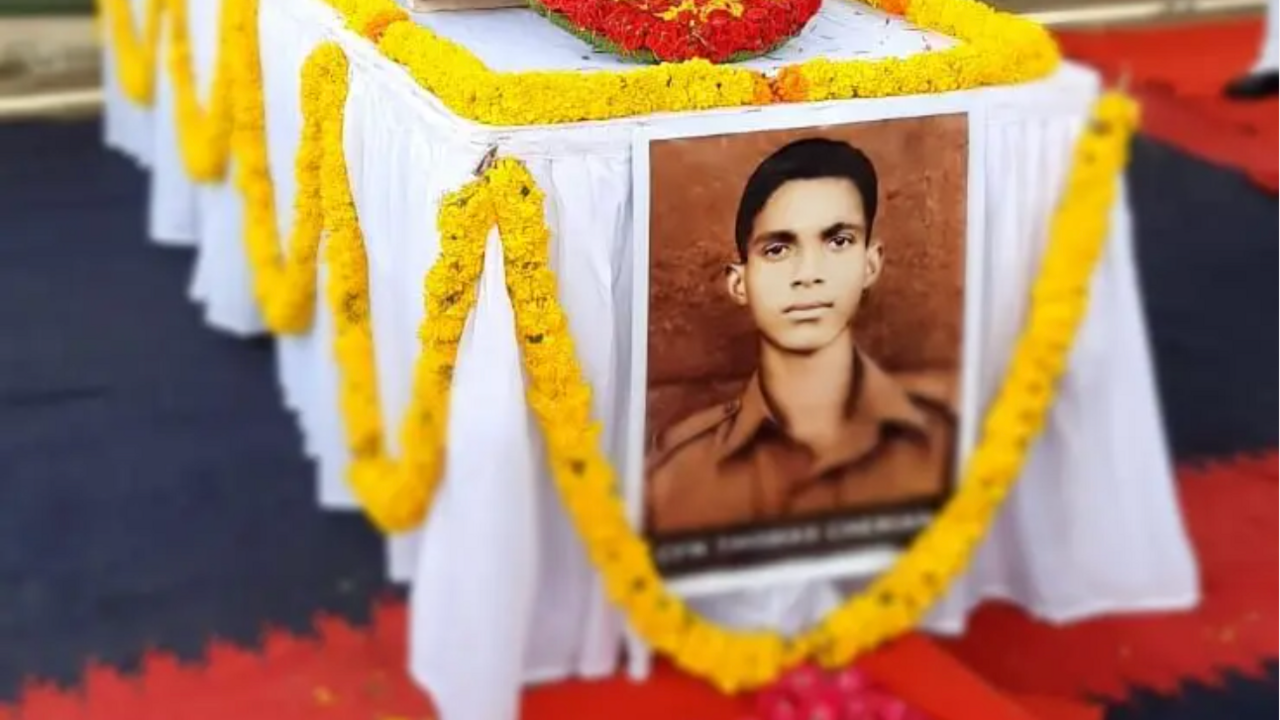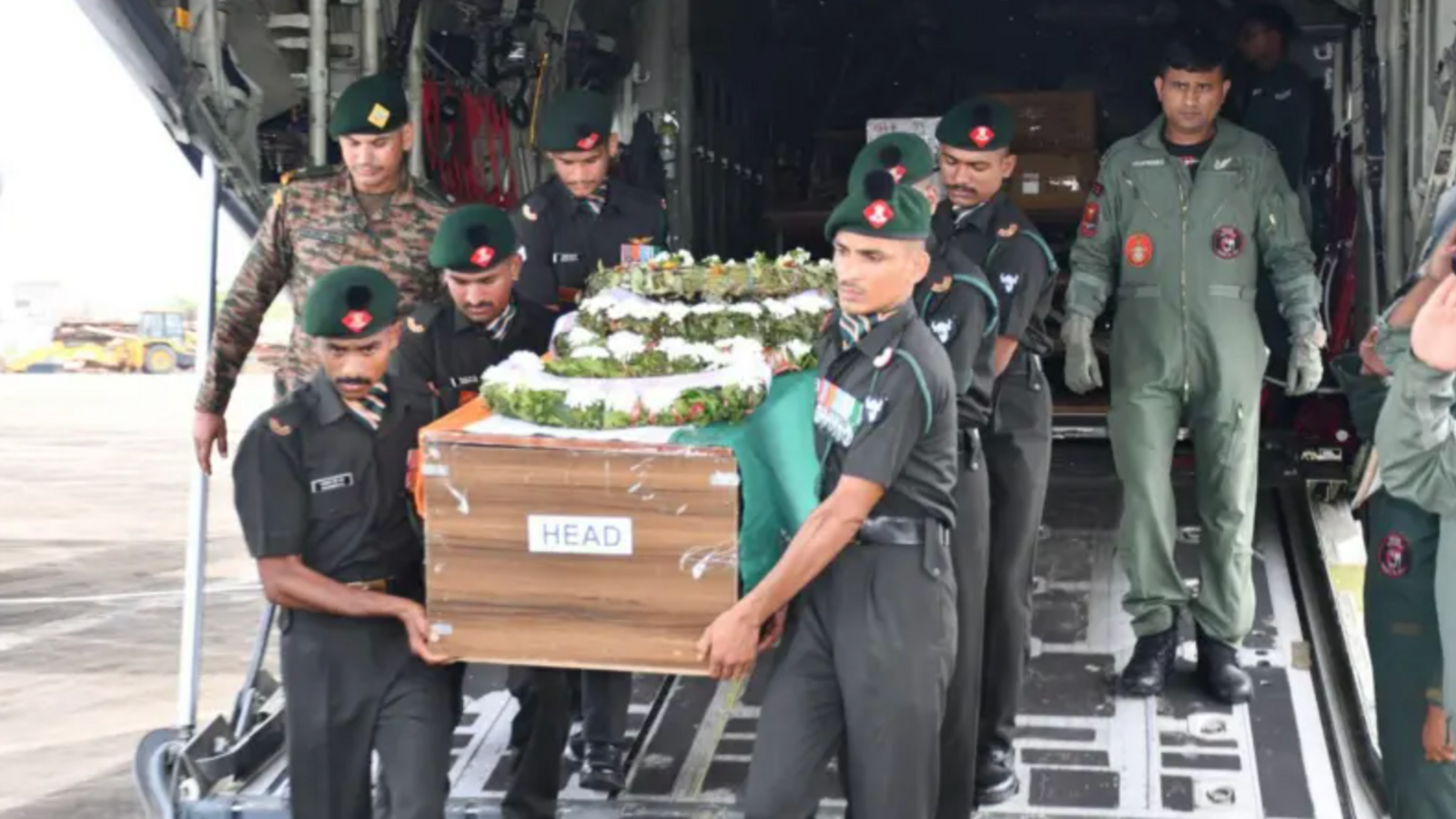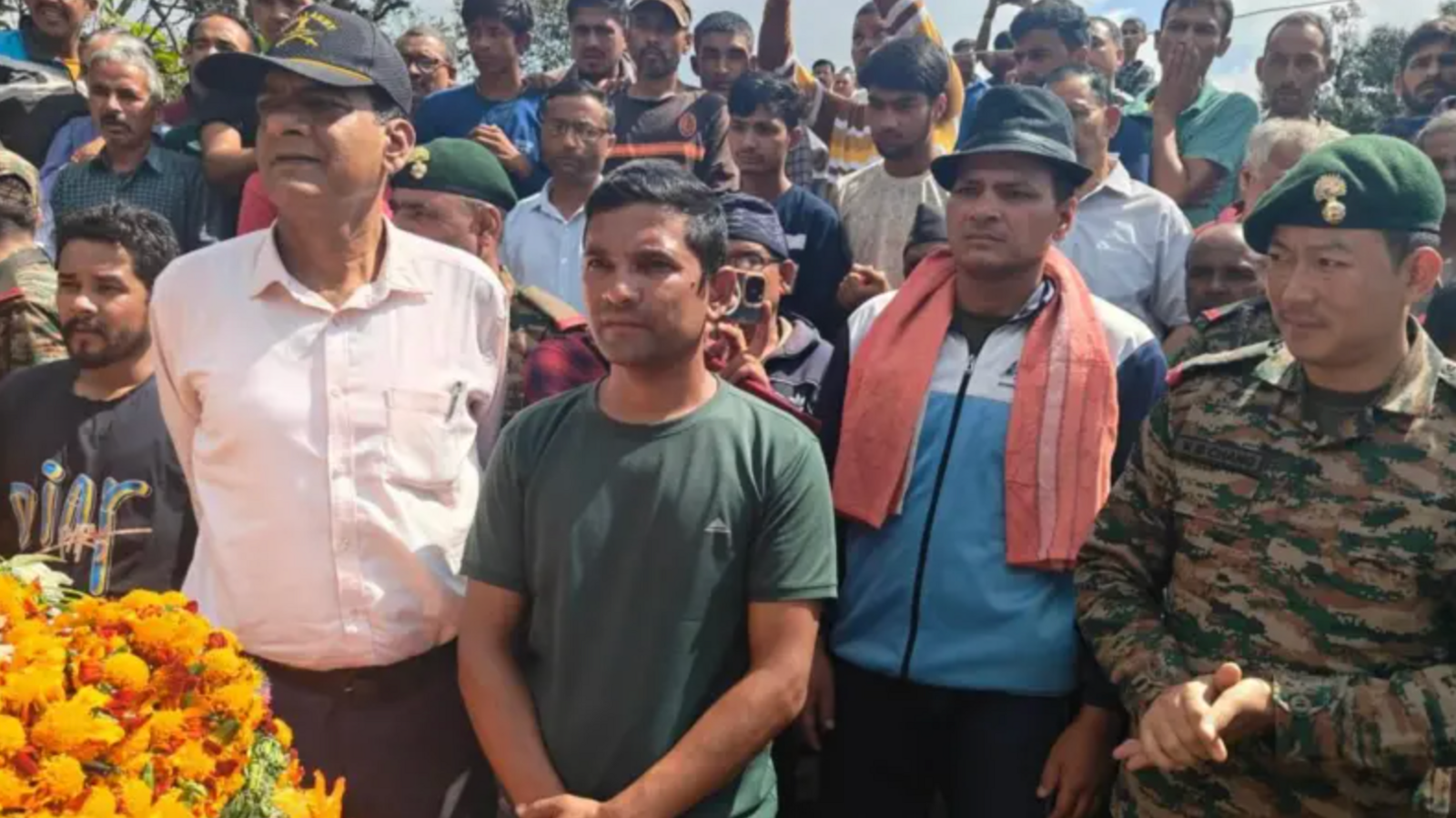Closure for family as body found 56 years after India plane crash

Cherian Thomas was 22 years old when he went missing
- Published
It was a phone call that ended a decades-long wait - of 56 years and eight months, to be precise.
The caller, from a police station in Pathanamthitta district in the southern Indian state of Kerala, gave unexpected news to Thomas Thomas - the body of his elder brother, Thomas Cherian, had finally been found.
Cherian, an army craftsman, was among 102 passengers on board an Indian Air Force aircraft that crashed in the Himalayas in 1968 after encountering severe weather conditions.
The plane went off the radar while it was flying over the Rohtang pass, which links the northern state of Himachal Pradesh to Indian-administered Kashmir.
For years, the IAF AN-12 aircraft was listed as missing and its fate remained a mystery.
Then in 2003, a team of mountaineers found the body of one of the passengers.
In the years since then, army search expeditions discovered eight more bodies and in 2019, the wreckage of the plane was recovered from the mountains.
A few days ago, the 1968 crash once again made headlines when the army recovered four bodies, including that of Cherian.
When the news reached the family, it felt like “the suffocation of 56 years had suddenly evaporated”, Mr Thomas told BBC Hindi.
“I was finally able to breathe again," he says.
Cherian, the second of five children, was just 22 years old when he went missing. He had boarded the aircraft to get to his first field posting in the Himalayan region of Leh.
It was only in 2003, when the first body was found, that his status was moved from missing to dead.
“Our father died in 1990 and our mother in 1998, both waiting for news about their missing son," says Mr Thomas.

A casket with Thomas Cherian's body was brought to Kerala state for his last rites
Altogether, only 13 bodies have been recovered until now from the site of the crash.
Harsh weather conditions and the icy terrain of the region make it hard for search teams to carry out expeditions there.
The bodies of Cherian and three others - Narayan Singh, Malkan Singh and Munshiram - were found 16,000ft above sea level near the Dhaka glacier. The latest operation was jointly conducted by the Dogra Scouts - a unit of the Indian army's Dogra regiment - and members of the Tiranga Mountain Rescue.
Officials used satellite imagery, a Recco radar and drones to locate the bodies, says Colonel Lalit Palaria, commanding officer of the Dogra Scouts.
The Recco radar, which can detect metallic objects buried in the snow at depths of about 20m, identified debris from the aircraft in the area.
The team then manually dug through the wreckage and found one body.
Three more bodies were recovered from within the crevasses of the glacier.
It was the nametag on Cherian's uniform - "Thomas C", with only the C of his surname visible - along with a document in his pocket that helped officials identify him.

Jaiveer Singh (in a green T-shirt) at the funeral of his uncle, Narayan Singh
His family says that while the grief of losing him could never fade, they are relieved to finally get some closure.
On 3 October, officials handed over Cherian's coffin, draped in the Indian flag, to his family. A funeral service was held at a church in their village Elanthoor, a day later.
Mr Thomas says that through all the years of waiting, army officials had told them that the search was still on and that they would let them know when they found Cherian's body.
"We really appreciate that they kept us posted all these years," he says, adding that many other members of the extended family had joined the armed forces even after Cherian's disappearance.
Like the Odalil family, the relatives of the other soldiers whose bodies were found recently are also dealing with the grief and relief. Many of their closest relatives, including parents and spouses, died waiting for news of them.
In the northern state of Uttarakhand, Jaiveer Singh is still processing the news. He also received his uncle Narayan Singh's body in early October.
Years after Narayan Singh went missing, his family lost hope. So with their consent, Singh's wife, Basanti Devi, began a new life with one of his cousins. Jaiveer Singh was one of the children born of that relationship.
He says that for years, his mother held on to hopes of Narayan Singh's return. She died in 2011.
"I don’t even have a photo of my uncle as a memory," he says.
Additional reporting by Asif Ali in Uttarakhand